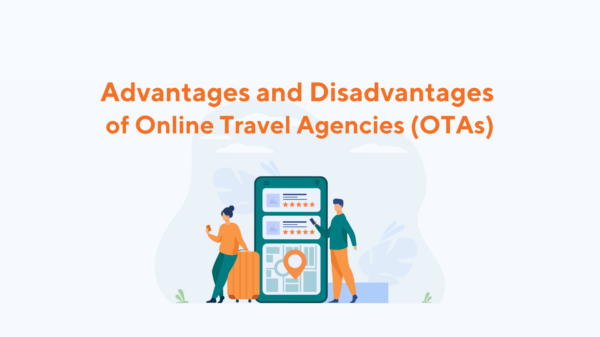Hiring the right team is the cornerstone of success in the tourism industry, where exceptional service can make or break your business.
This guide will give you the rundown of hiring in tourism, broken down into simple steps: identifying gaps in your team, hiring seasonal staff in tourism, looking for key skills, and managing a smooth hiring process.
By the way, if you’re looking to hire guides specifically, check out our article Five Steps for Recruiting the Best Tour Guides.
Assessing Your Hiring Needs

Start by working out where your gaps are and identifying essential roles.
- Identify talent gaps. First, conduct a skills audit of your current team by listing each member’s competencies. Then consider what roles or skills are missing. For example, you may not have any multilingual staff. Or your employees may lack customer service experience or technical skills, like using booking platforms.
- Prioritize critical roles. Consider your business type and pick out the essential positions to ensure it runs effectively. So, if you operate a tour business, you may need experienced guides. If you run a hotel, front desk staff or operations managers could be your primary focus.
- Weigh up seasonal vs. year-round hiring needs. Tourism is a seasonal business. So, make sure you understand the demands of your peak and off-peak seasons to determine appropriate staffing levels.
Seasonal Hiring: Best Practices

Let’s drill down on hiring seasonal staff in tourism by looking at recruiting, retention, and training strategies.
- Start planning early. Build a recruitment calendar for peak seasons to avoid last-minute shortages.
- Find effective recruitment channels. Check out effective ways to find the people you need. Reach out to tourism schools and attend local job fairs. Research seasonal job boards and employee referral programs.
- Create retention strategies for seasonal workers. Once you’ve found your people, make sure you keep them. You can make your package attractive by offering perks such as end-of-season bonuses, accommodation, or flexible schedules.
- Train seasonal staff quickly. Focus on short, impactful onboarding programs to get seasonal hires up to speed. This benefits your business and helps your recruits gain confidence quickly.
Defining Your Hiring Budget

Get the most out of your hiring in tourism budget by following these tips:
- Allocate for key roles. Prioritize your budget for roles that have the biggest impact on customer experience. These are likely to be customer-facing employees such as receptionists, guides, and destination managers.
- Understand total costs. Beyond salaries, include costs like training, uniforms, and employee benefits such as health insurance. You may also want to include things like subscriptions to software or tech tools that help your staff do their jobs.
- Problem-solve hiring on a budget. If your budget is tight, leverage free recruitment channels like social media and local networks. Interns or trainees from tourism programs are also a great choice, as they’re often keen to gain experience but don’t command a large salary.
Essential Skills to Look for in Tourism Employees

There are some skills that you can’t do without—check out our list:
- Customer service excellence. This is about going the extra mile for customers, giving them the best possible experience. It also includes advanced skills such as the ability to stay calm under pressure and handle customer complaints with professionalism.
- Adaptability and problem-solving. Employees need to think on their feet in unpredictable situations. Look for hires who demonstrate flexibility and adaptability.
- Teamwork and collaboration. Tourism relies on seamless coordination across roles. For example, guides work with booking staff to ensure a great experience for customers.
- Multilingual abilities. It’s essential that your staff can communicate effectively with a range of customers. Employees who speak more than one language are an asset.
- Tech-savviness. Hire staff who are comfortable using booking platforms like Rezgo or managing customer databases. They should be willing to learn new skills and undergo training too.
Non-Negotiables: What to Look for in Every Hire

Here’s our list of non-negotiables for hiring in tourism:
- Passion for the industry. Choose employees who display a genuine love of travel and hospitality.
- Reliability. Tourism businesses rely on punctual, dependable staff. Look for evidence that hires have shown commitment to previous roles.
- Cultural sensitivity and awareness. These are a must-have for working with diverse customers. Candidates can demonstrate that they’re culturally aware in a variety of ways, such as talking about their love for another language or culture.
- Work ethic. This is especially crucial for roles that require long or irregular hours. The tourism industry is 24/7, so make sure potential hires understand the shifts or hours they will be expected to do.
Streamlining the Hiring Process
Make hiring in tourism hassle-free for you and your recruits with a clear recruitment process and easy onboarding.
- Use clear job descriptions. Write detailed descriptions that outline responsibilities, skills, and expectations. This helps the candidates understand the role early on.
- Screen for key skills. Include role-specific scenarios or short skills assessments in the interview process.
- Make onboarding smooth. Provide new hires with training materials, a buddy system, or shadowing opportunities to integrate them quickly. This can help you improve retention rates and save you from having to hire again in a short timeframe.
Retaining Top Talent in Tourism

Once you’ve hired the right candidates, make sure you keep them by following these tips:
- Build a positive workplace culture. Celebrate successes, provide regular feedback, and encourage open communication. These actions help your employees feel valued.
- Offer growth opportunities. Use cross-training, certifications, or internal promotions to retain year-round staff. Create a growth pathway so they can progress in their career.
- Stay competitive. Regularly review your compensation packages and adjust them to meet industry standards. There are plenty of other employers out there, so be sure to offer your staff a reason to stay.
Final Thoughts
Your staff are the foundation on which your tourism company can grow. When you take time to understand your hiring needs and identify talent gaps, you have the knowledge to build a valuable team that aligns with your business goals.
Ready to grow your tourism business? Rezgo helps you save time on operations so you can focus on hiring the best team. Learn more today!





